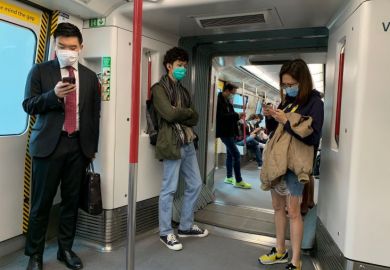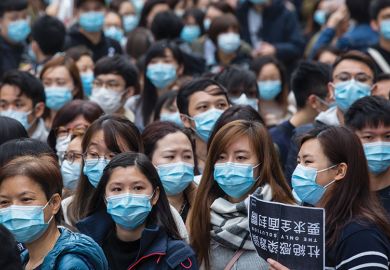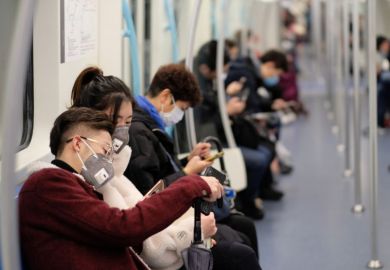Two open letters signed by mainland Chinese professors should be seen as the academy’s boldest challenge to the government since Xi Jinping came to power in 2012, according to experts in the US and the UK.
The letters were a response to the death of Li Wenliang, a doctor and one of eight whistleblowers who warned the authorities about the Sars CoV-2 coronavirus outbreak. Dr Li, a 34-year-old ophthalmologist who had been questioned and warned by the police for speaking out, died of the disease.
Steve Tsang, director of the China Institute at SOAS University of London, told Times Higher Education that, in terms of academics voicing criticism, “the tightening of control under Xi has changed things”.
“Now it requires real courage and a preparedness to be punished for speaking up, as those scholars have done in the two open letters,” Professor Tsang said.
While nobody knows what might happen to the signatories, experts were concerned that they could face censure.
“They may not be punished right away, but punishment of some sort can be expected in due course,” Professor Tsang said. “They know that. Yet they have spoken up. These are brave individuals who stand up for what is right. Their actions show that the human spirit is still alive and well in China.”
Mass discontent with the government’s handling of the crisis might have opened a window for academics to speak, he added. “They don’t need Dr Li’s inspiration to do so. But they may have taken advantage of the presence of public anger to speak up and hope to stay unpunished until the coronavirus crisis is over.”
Xiao Qiang, a research scientist at the University of California, Berkeley’s School of Information, told THE that although letters from “public intellectuals” had been common in the late 1990s and 2000s, the government had since become “much less tolerant to those kinds of liberal voices”.
“This is the first time Chinese public intellectuals have made their demand for free speech loud and clear since 2012,” Professor Xiao said. “It is because the whole society has realised how painful they have to suffer under this autocracy, and Li Wenliang’s death crystallised the importance of free speech for Chinese people.”
The first open letter, written by 10 Wuhan professors, calls for freedom of speech as protected by the Chinese constitution, an apology to the eight whistleblowers and recognition of Dr Li as a martyr.
One of its signatories, Tang Yiming of Central China Normal University in Wuhan, confirmed the validity of the letter to the South China Morning Post.
“If the words of Dr Li had not been treated as rumours, if every citizen was allowed to practise their right to voice the truth, we would not be in such a mess; we would not have a national catastrophe with an international impact,” Professor Tang said.
Another open letter, addressed to the National People’s Congress on 7 February, made similar demands. It was signed by nine academics, including Xu Zhangrun of Tsinghua University and Zhang Qianfan of Peking University. One of its recommendations is that 6 February, the day of Dr Li’s death, be marked as National Freedom of Speech Day.
Some versions of the letters have now attracted hundreds of signatures from members of the general public.
Register to continue
Why register?
- Registration is free and only takes a moment
- Once registered, you can read 3 articles a month
- Sign up for our newsletter
Subscribe
Or subscribe for unlimited access to:
- Unlimited access to news, views, insights & reviews
- Digital editions
- Digital access to THE’s university and college rankings analysis
Already registered or a current subscriber?









